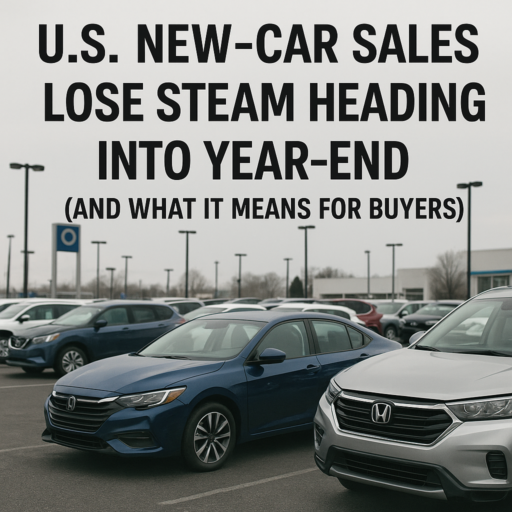When a powerful storm like Hurricane Helene (2024) is on the horizon, it’s not just the homes and infrastructure in coastal regions that are at risk. Vehicles often bear the brunt of damage from severe weather, and in many cases, they end up being declared total losses by insurance companies. Whether it’s from flooding, high winds, or saltwater exposure, thousands of vehicles could be at risk of irreparable damage.
Understand how hurricanes like Helene cause total vehicle losses, why a second opinion appraisal might be necessary for accurate compensation, and how you can protect yourself during the claims process.
—
The Impact of Hurricanes on Vehicles: Total Loss Risks
1. Flooding Damage: A Major Cause of Vehicle Total Losses
One of the most common consequences of hurricanes is flooding, which can result in catastrophic damage to vehicles. When water submerges a car, especially for extended periods, the following types of damage can occur:
– Engine Damage: Water can seep into the engine and other critical mechanical components, causing internal failures.
– Electrical System Failure: Modern cars rely heavily on electronics, and flooding often results in irreversible damage to the vehicle’s wiring, sensors, and computers.
– Corrosion: Prolonged exposure to water, particularly salt water from storm surges, can lead to extensive corrosion of the vehicle’s metal parts, including the undercarriage.
– Interior Damage: Flooding can destroy upholstery, carpets, and other interior features, often resulting in mold and mildew that are difficult and expensive to remove.
When repairs for this type of damage cost more than 70-80% of the car’s market value, the vehicle is typically declared a total loss.
2. Wind Damage: Beyond the Obvious
While wind damage alone may not always lead to a vehicle being declared a total loss, hurricanes like Helene can cause significant damage through:
– Falling Debris: Trees, branches, and even signage can fall on cars, causing extensive structural damage.
– Broken Windows and Body Damage: High winds can shatter windows, dent the car’s body, and rip off external components like mirrors or bumpers.
If wind damage is combined with flooding, or if the structural integrity of the vehicle is compromised, it may be impossible or too costly to repair.
3. Storm Surges and Saltwater: The Hidden Danger
Storm surges can push saltwater inland, flooding coastal areas and causing even more severe damage than freshwater flooding. Vehicles exposed to saltwater are at high risk for:
– Accelerated Corrosion: Saltwater is highly corrosive, speeding up rust and deterioration of metal components.
– Severe Electrical Failures: Saltwater can short-circuit a vehicle’s entire electrical system, rendering it inoperable.
This type of damage is often irreversible, making saltwater exposure one of the main reasons vehicles are declared total losses after a hurricane.
Insurance Claims: Why You Might Need a Second Opinion Appraisal
After a hurricane like Helene, insurance companies are likely to see a surge in total loss claims. But here’s the catch—sometimes insurers undervalue the damage to your vehicle. They may rely on outdated data or fail to account for hidden damage that could manifest later.
Common Issues with Initial Insurance Valuations:
– |Undervaluation: Insurers may use inaccurate comparable or overlook extensive damage when calculating the payout.
– Hidden Damage: Flooding can cause long-term issues, such as electrical failures or corrosion, that aren’t immediately visible but drastically reduce the vehicle’s value.
In these situations, a second opinion appraisal can ensure you get the compensation you deserve. An independent appraisal reviews the insurer’s valuation and often identifies areas where the payout should be higher.
—
Hidden Damage: The Silent Total Loss Factor
One of the most frustrating parts of vehicle damage after a hurricane is hidden damage. Even if your car appears to be in decent shape, water exposure can cause problems that aren’t immediately visible:
– Wiring and Sensors: Damage to your vehicle’s electrical system may not show up until weeks or months after the flooding.
– Transmission and Drivetrain: Key mechanical systems can suffer damage from water exposure, leading to costly repairs or failure down the road.
– Mold and Mildew: Trapped moisture inside the car can cause mold and mildew to form, which is often difficult to remove and can cause health issues.
These hidden issues are a major reason why it’s important to get a thorough inspection after a storm, even if your vehicle seems unharmed.
—
Why Hurricane Helene (2024) Could Lead to a Spike in Totaled Vehicles
Based on current spaghetti models and weather forecasts, Hurricane Helene is expected to bring heavy rains, flooding, and high winds to several coastal regions. This means that the potential for vehicle damage is significant, especially in areas that are prone to storm surges and poor drainage.
– Flood-Prone Areas: Cars parked in low-lying areas may be submerged for extended periods, increasing the likelihood of severe water damage.
– Saltwater Exposure: Coastal areas facing storm surges will likely see vehicles declared total losses due to the corrosive effects of saltwater.
– Urban Flooding: In cities with poor drainage systems, even a few inches of water can cause extensive flooding, leading to a spike in total loss claims.
If you live in an area that might be affected by Hurricane Helene, it’s essential to be proactive about documenting your vehicle’s condition and understanding your insurance policy.
Conclusion: Protecting Your Vehicle and Your Claim
As Hurricane Helene approaches, it’s important to recognize the significant risk that storms pose to your vehicle. Flooding, wind damage, and saltwater exposure can quickly render a car beyond repair, leaving you with a total loss claim.
To ensure you receive fair compensation from your insurance company, consider obtaining a second opinion appraisal.
This can help you identify hidden damage and maximize your payout. At Appraisal Engine, we specialize in total loss appraisals and are here to help you through the process. Don’t wait until it’s too late—contact us today for a free review.



